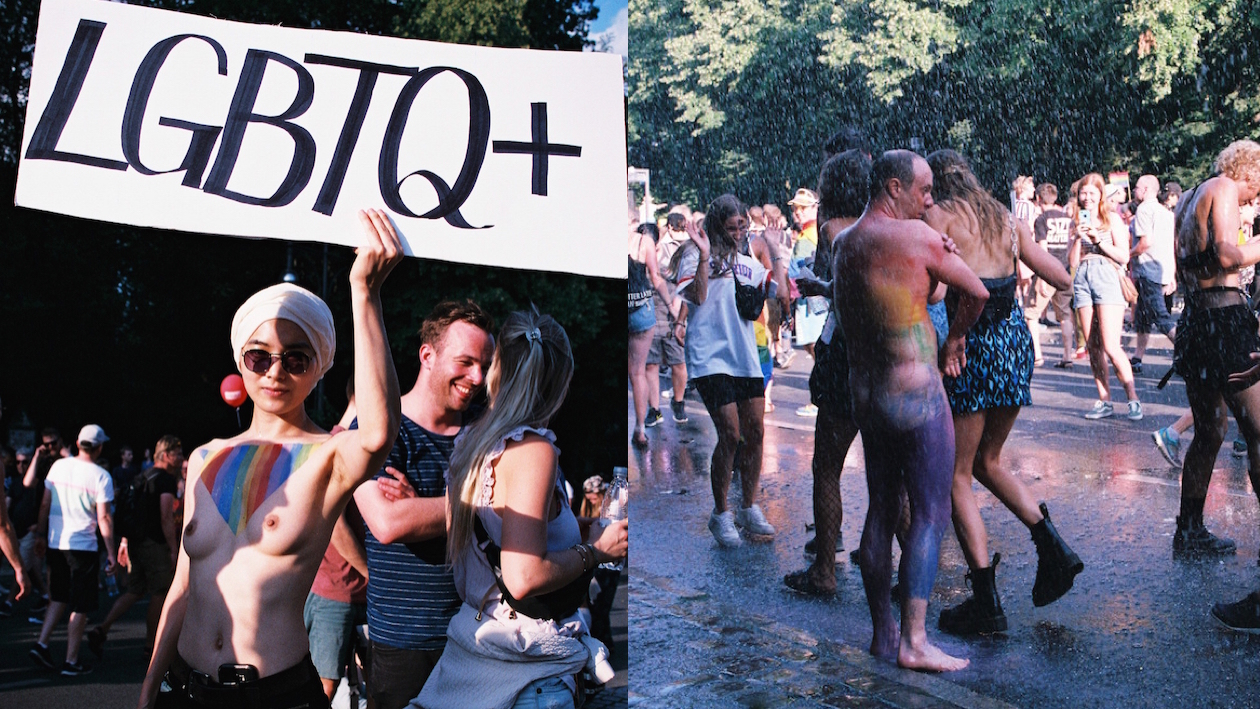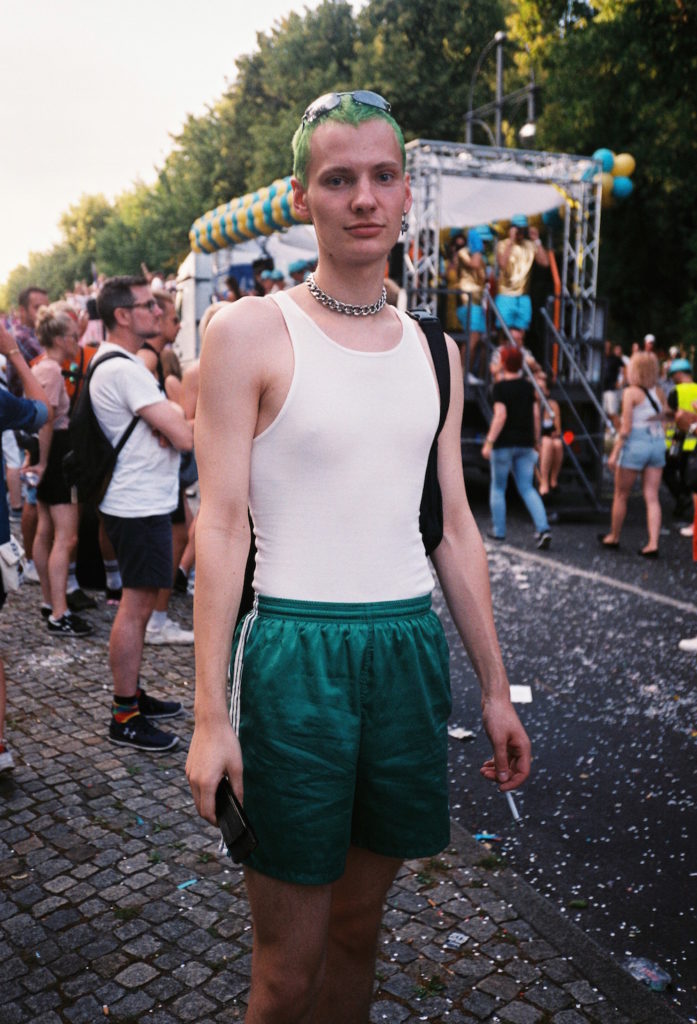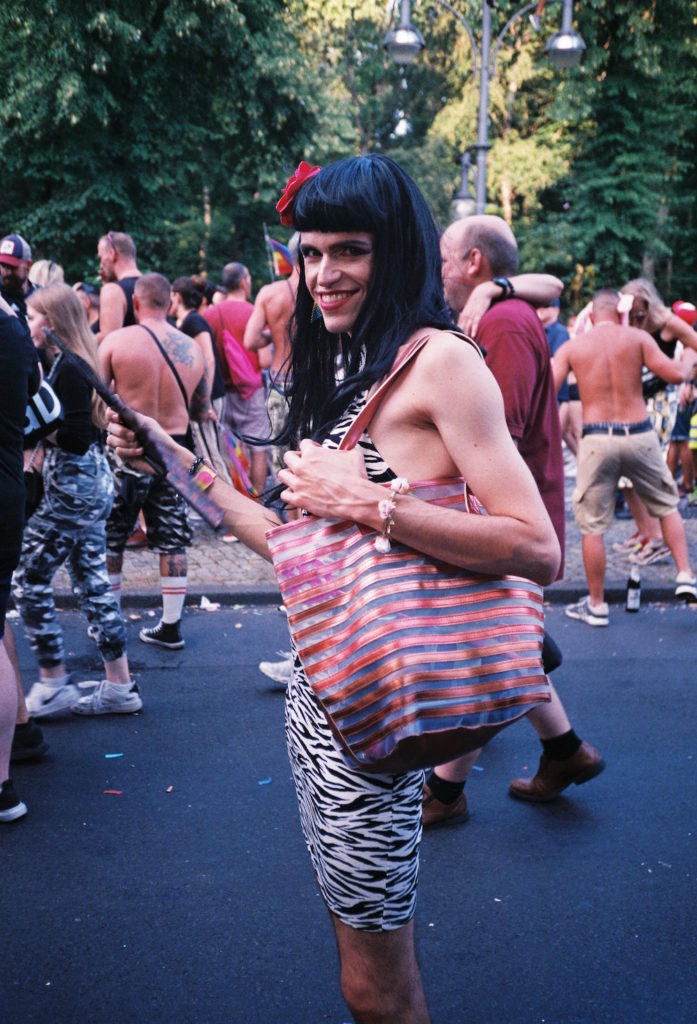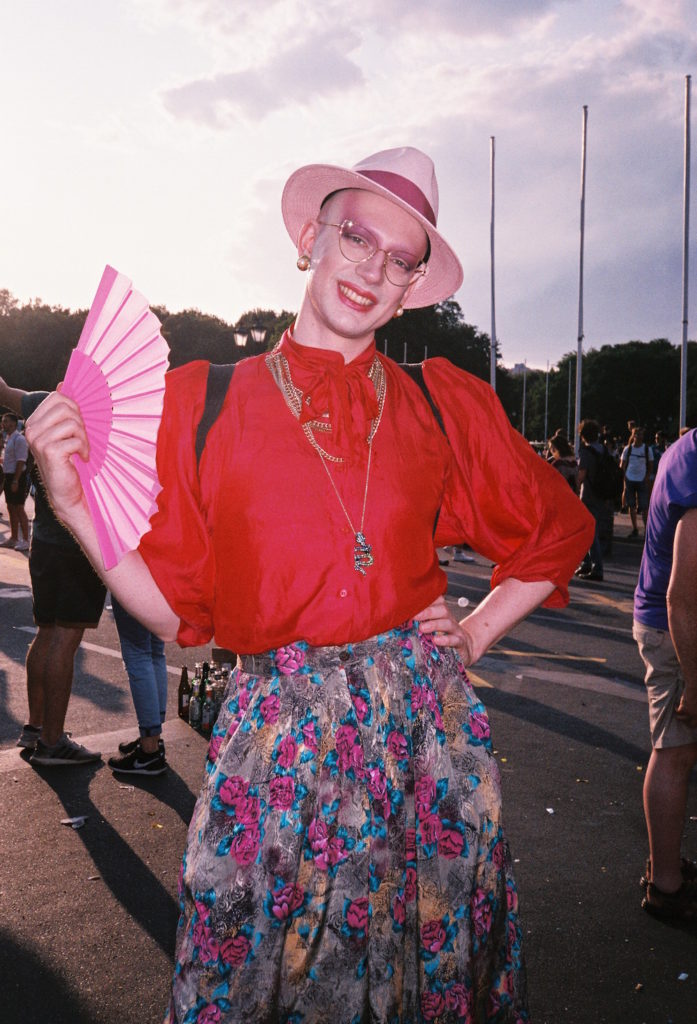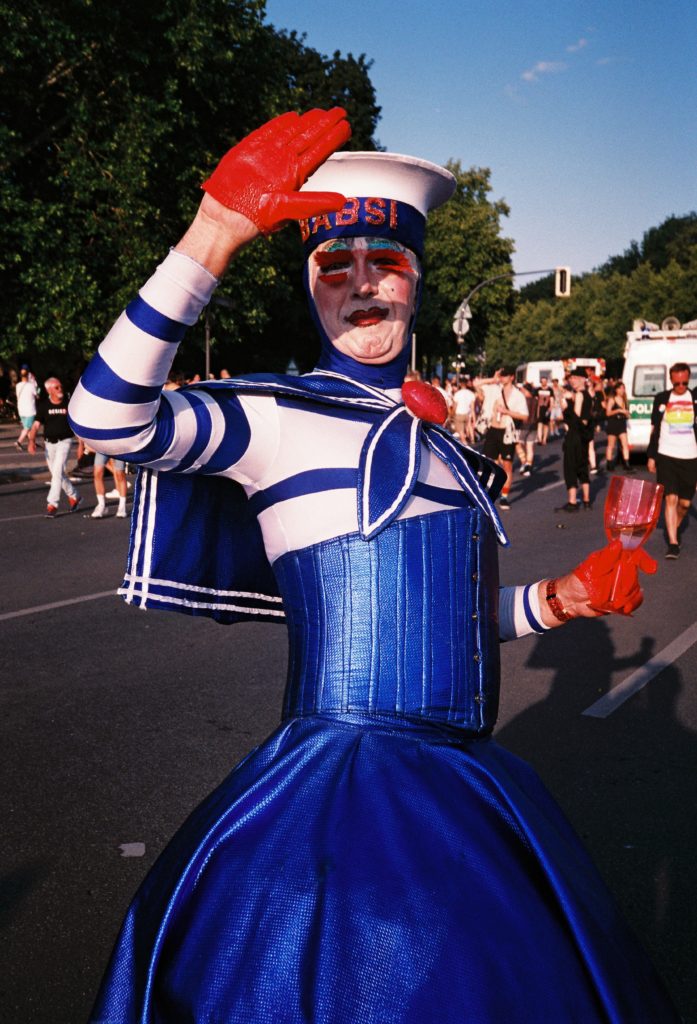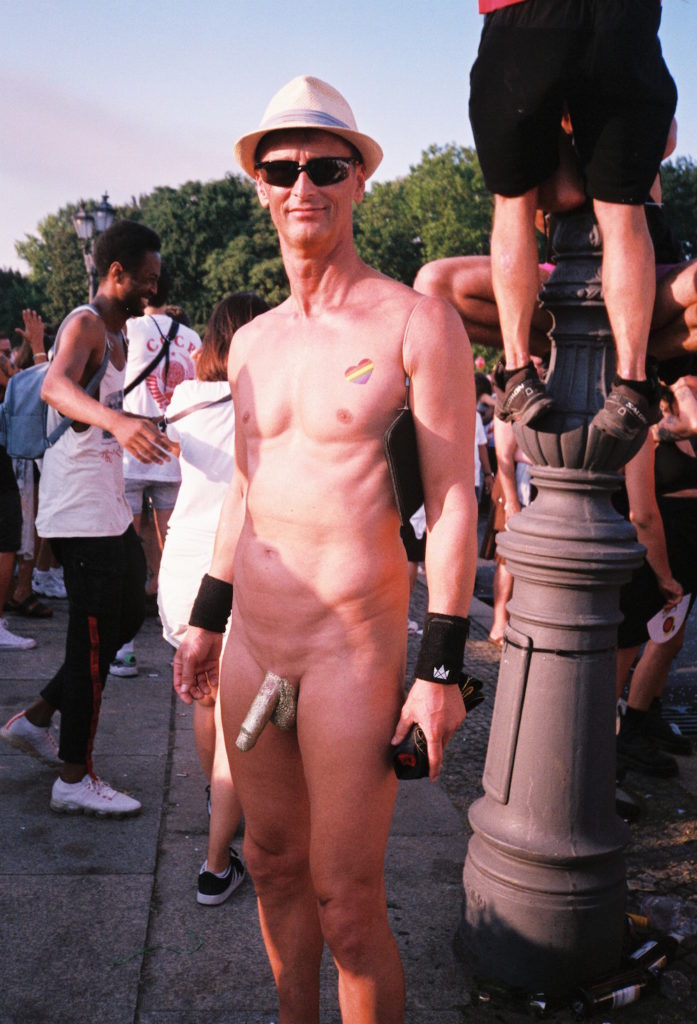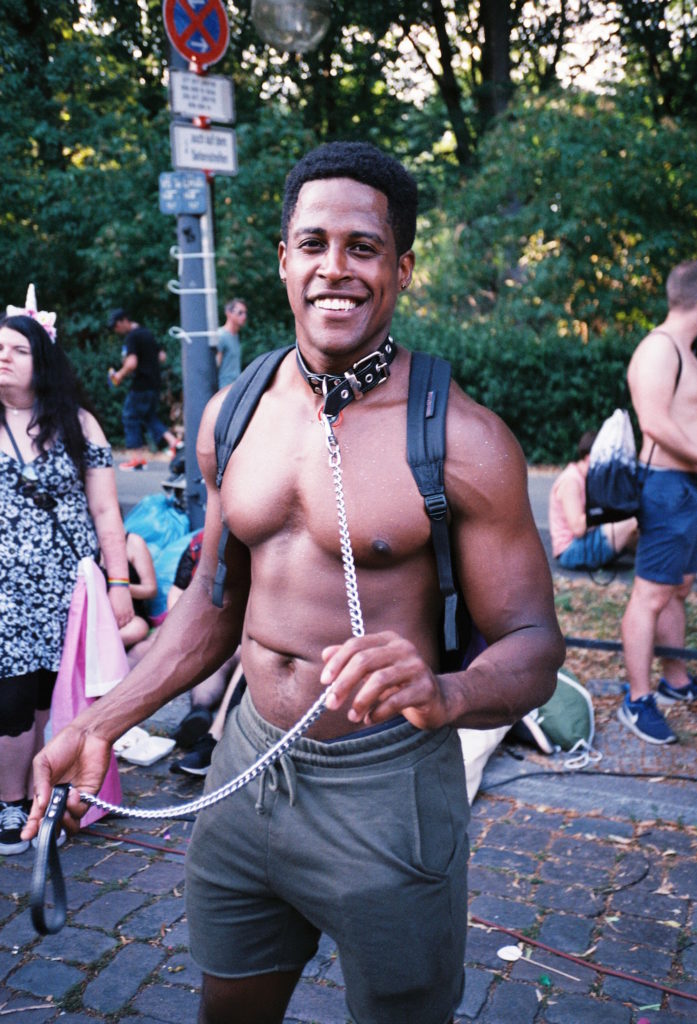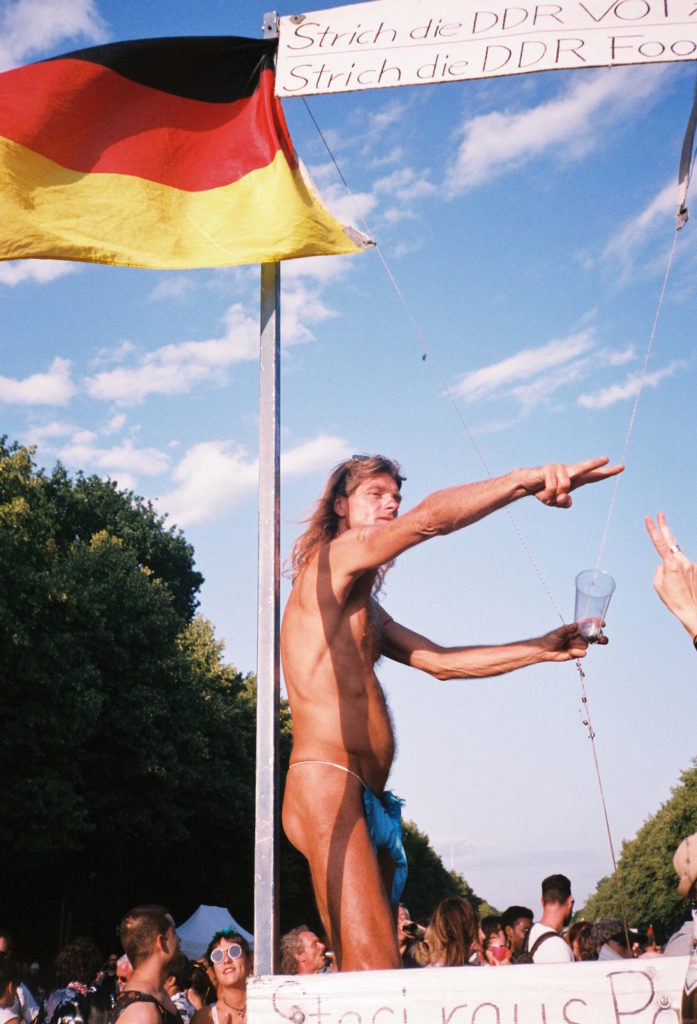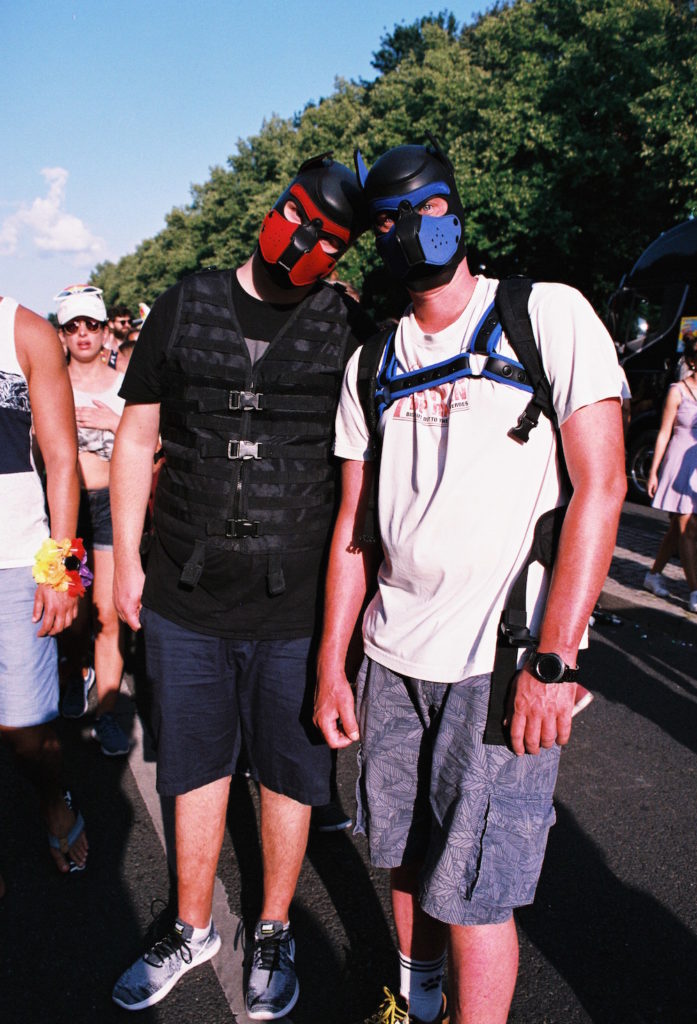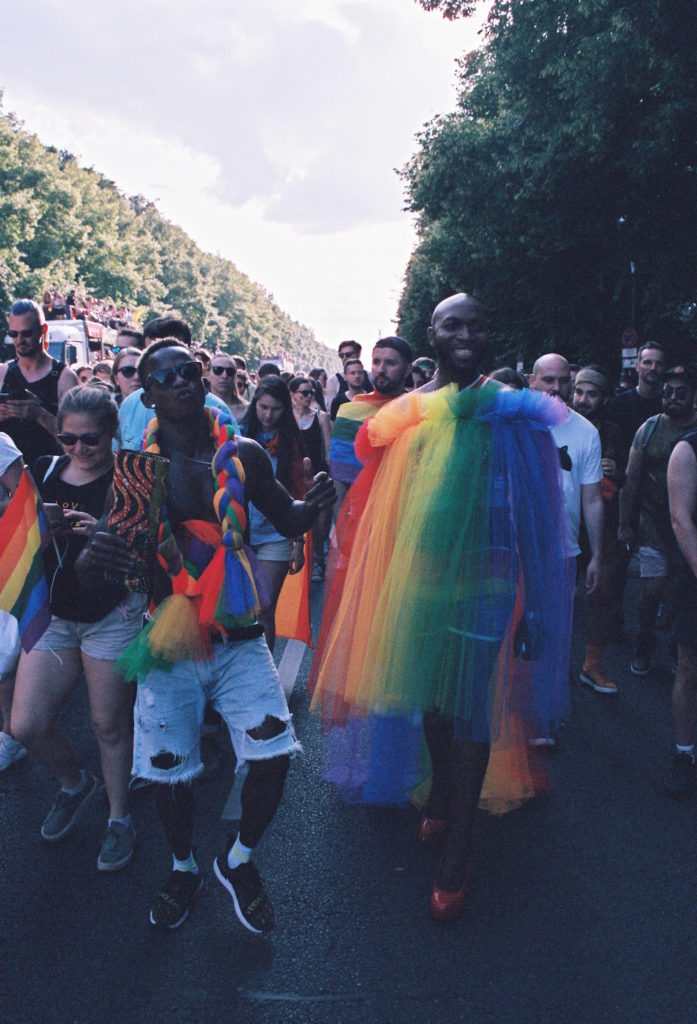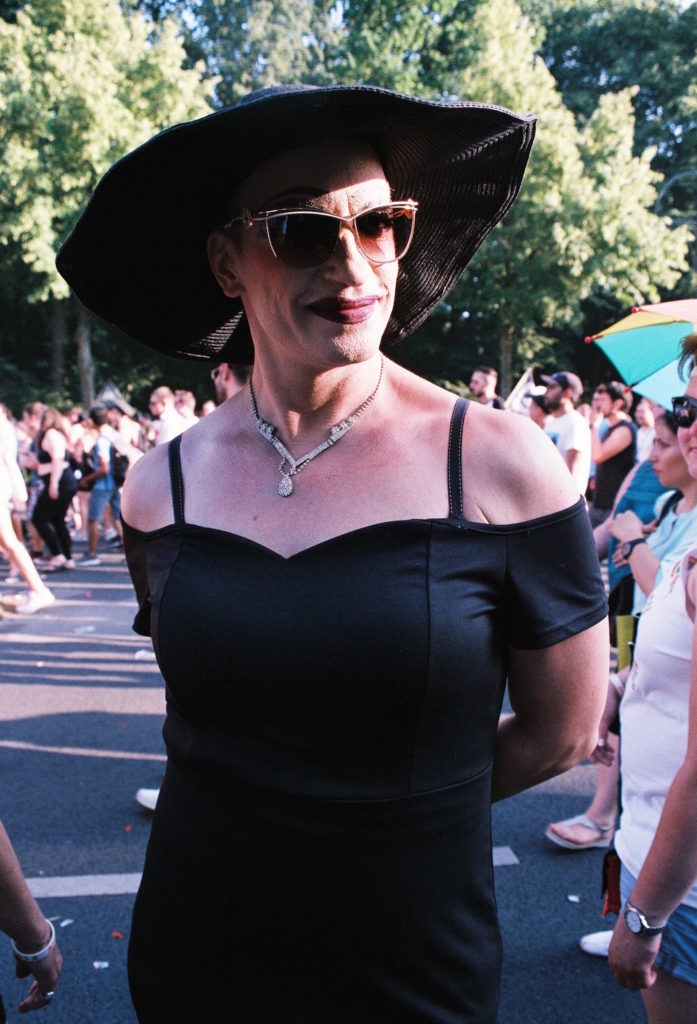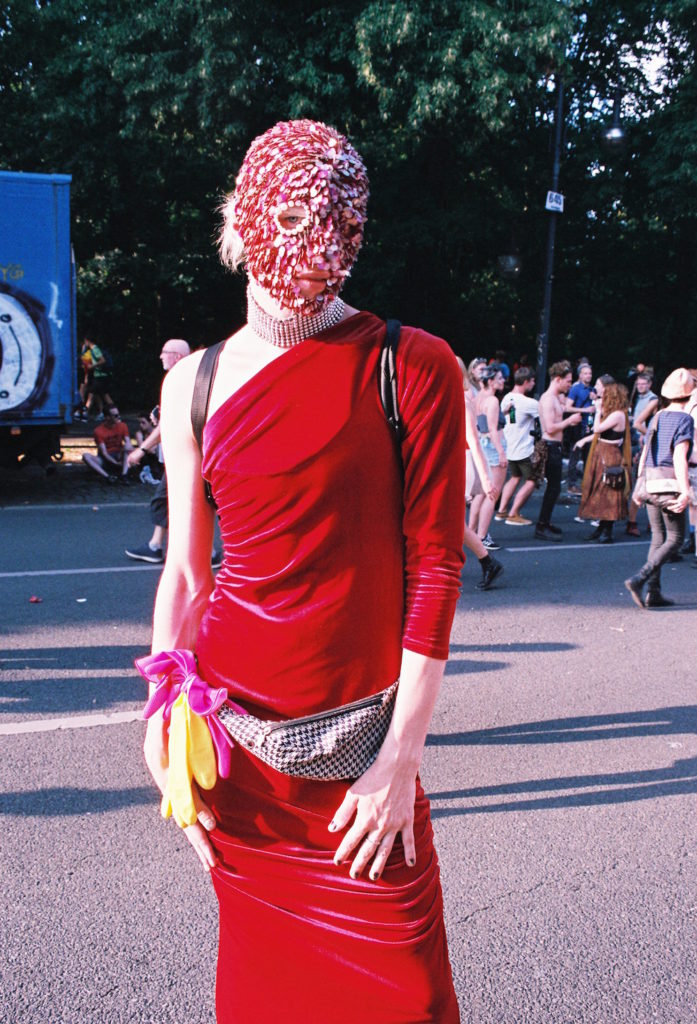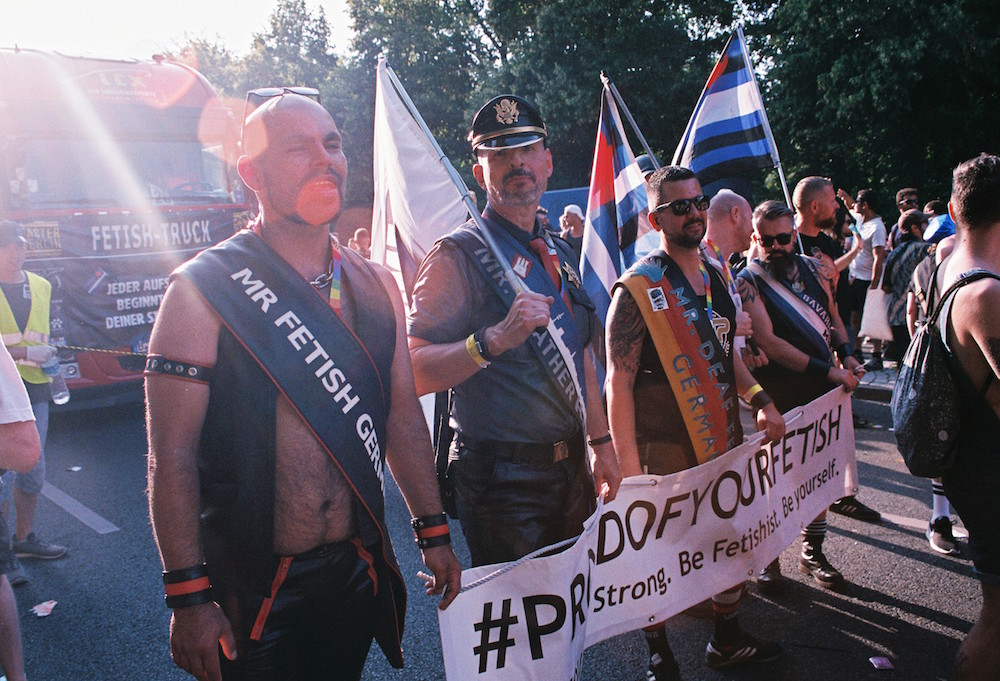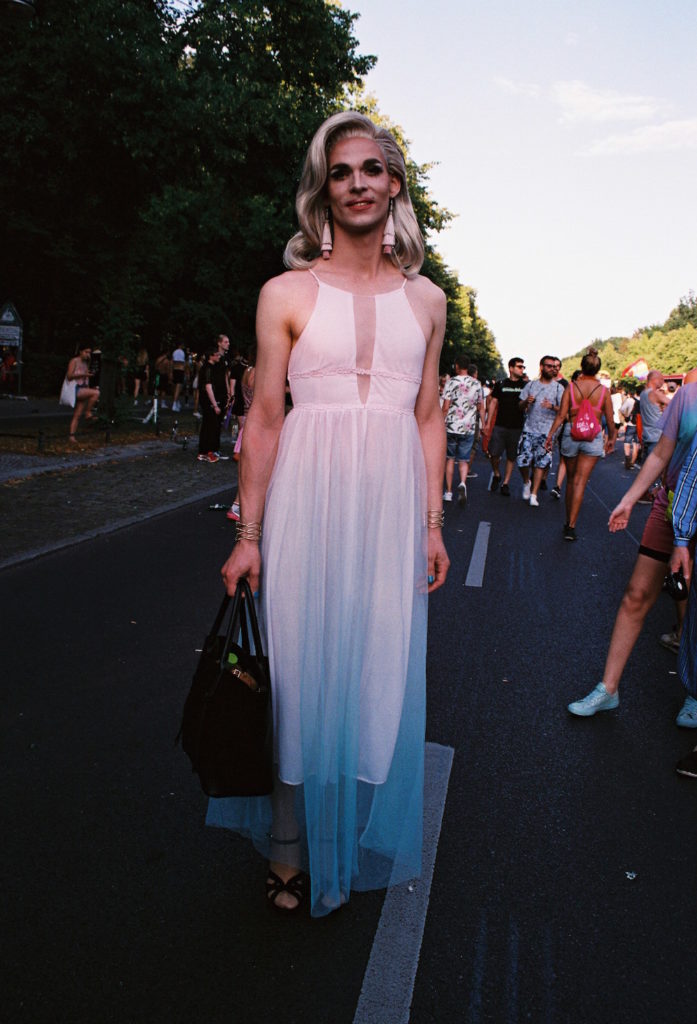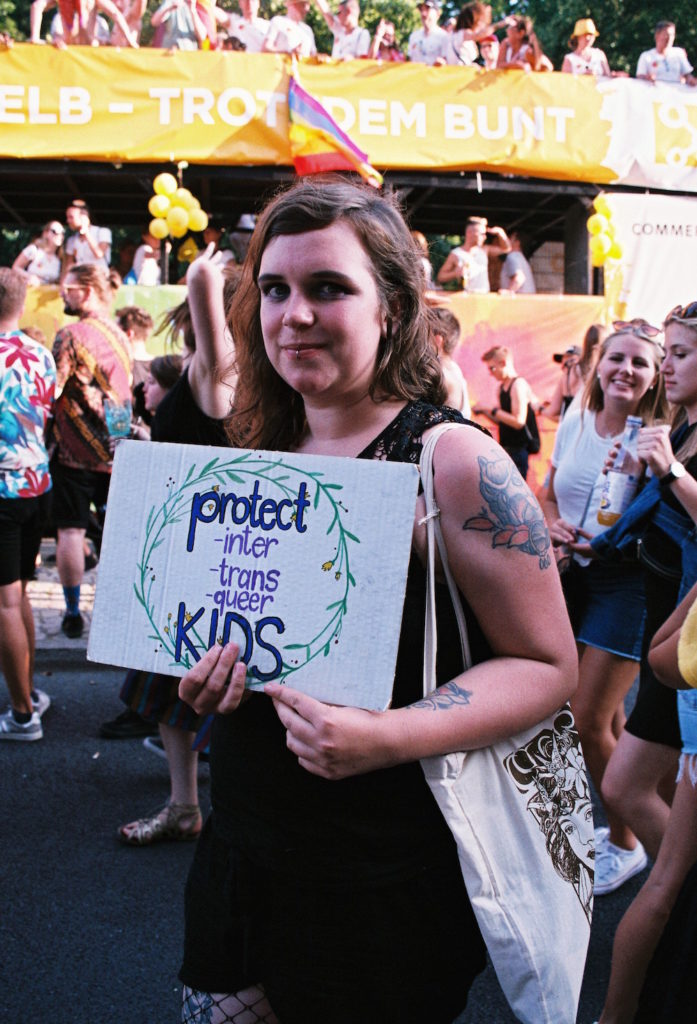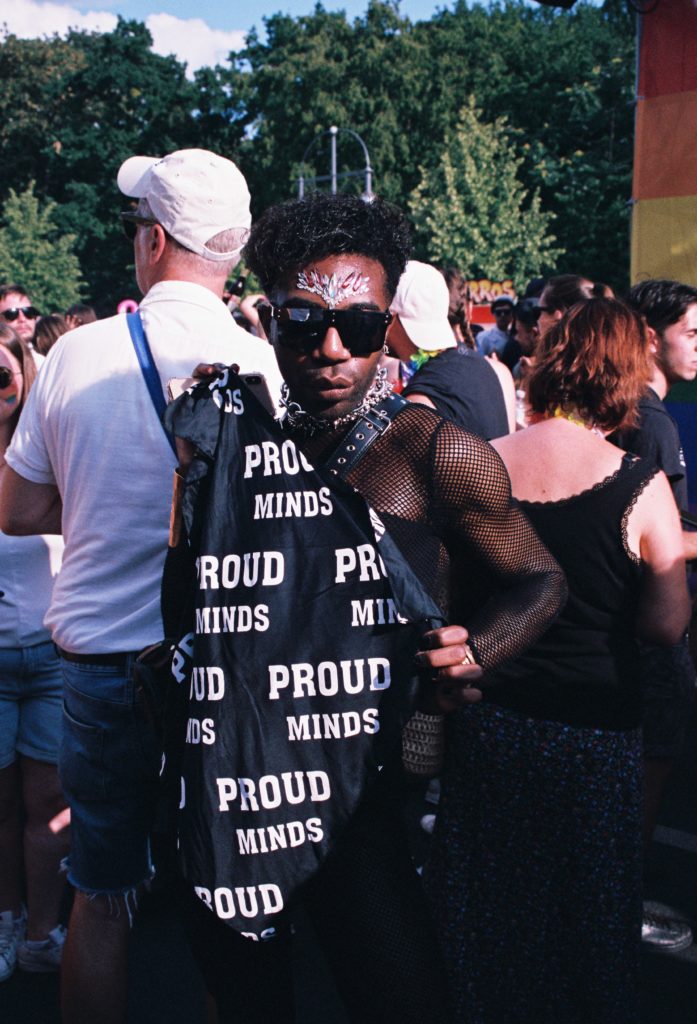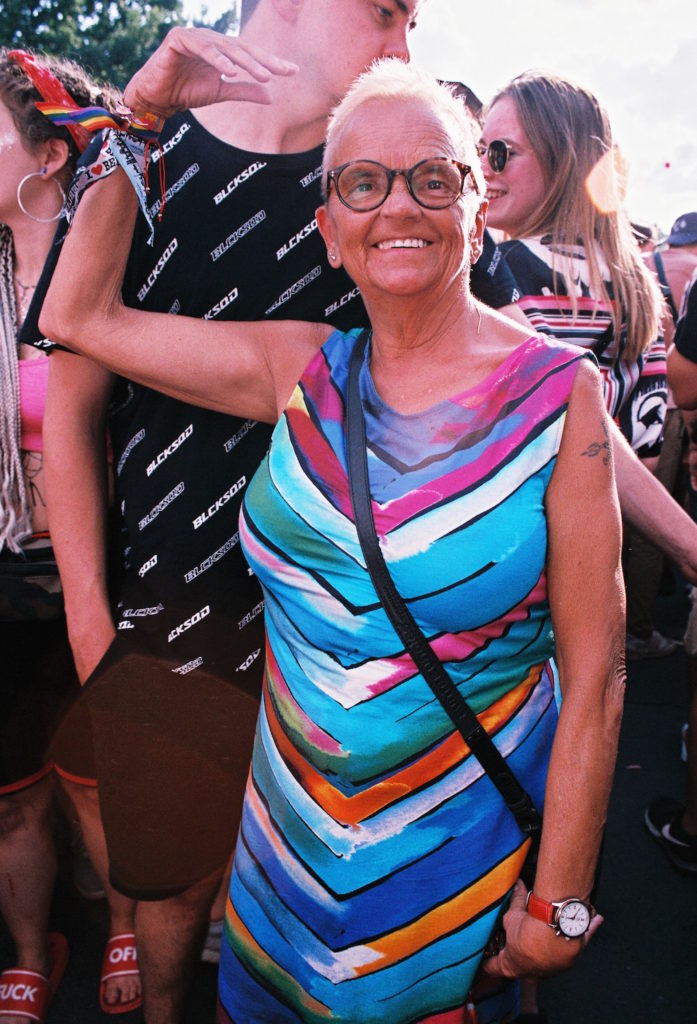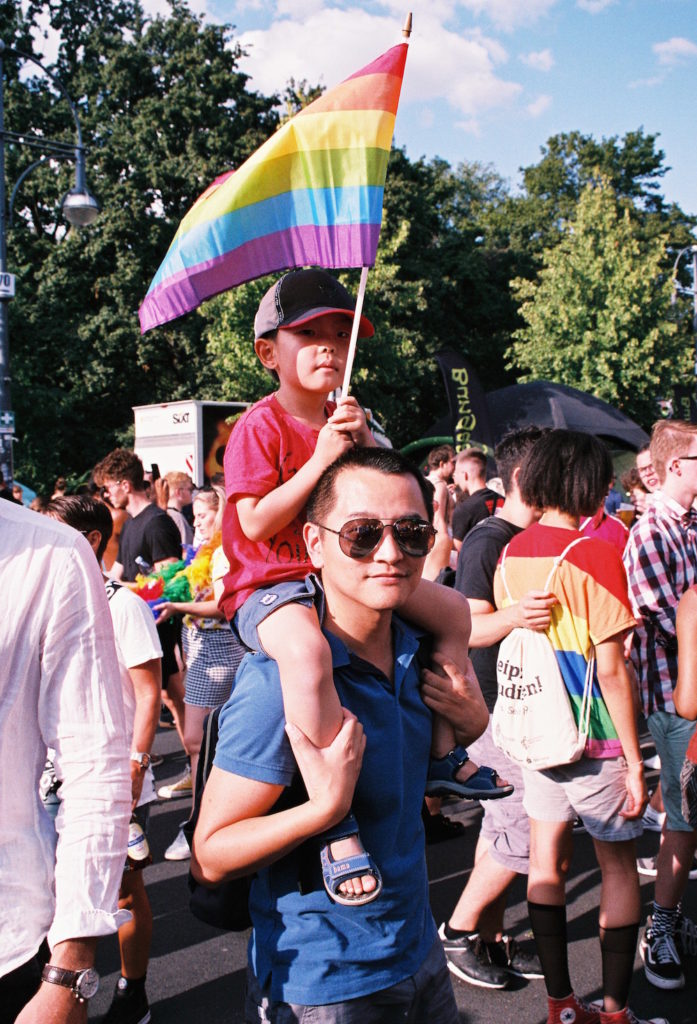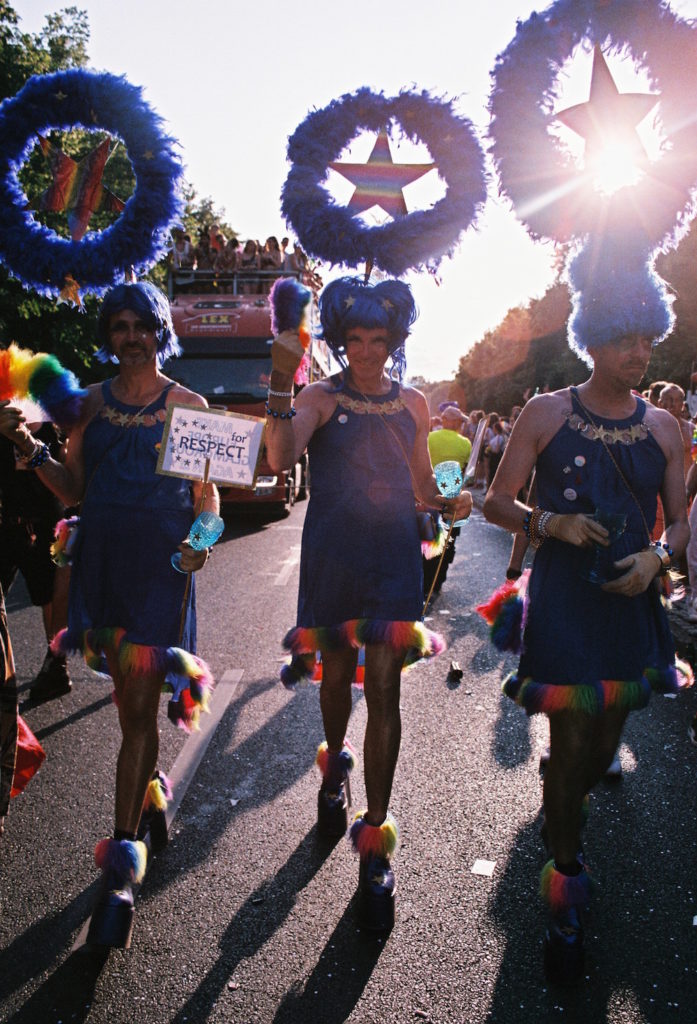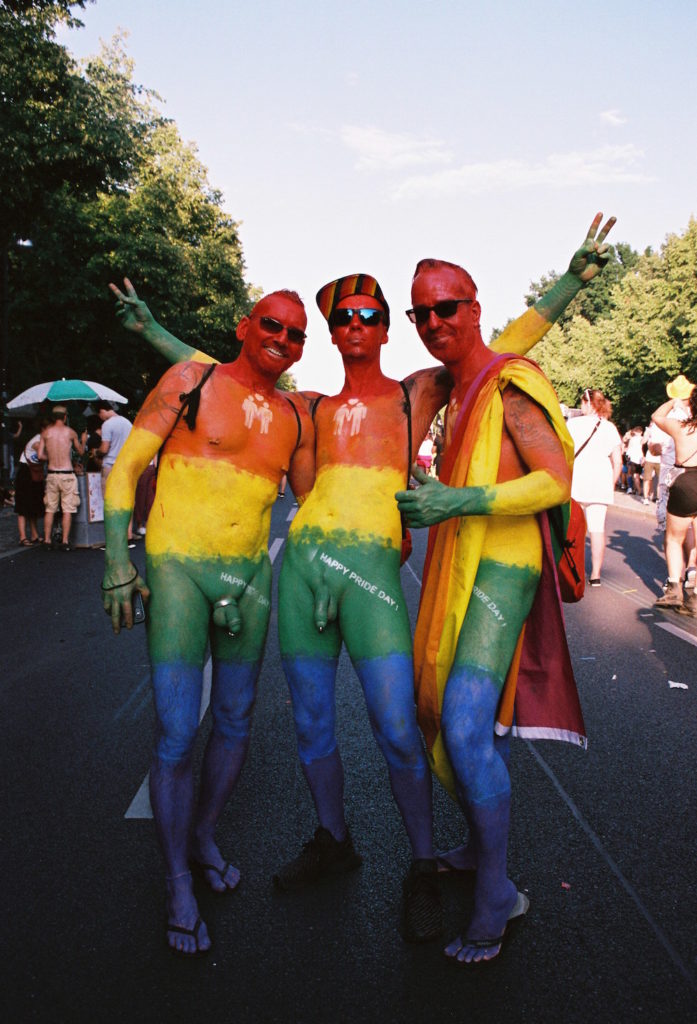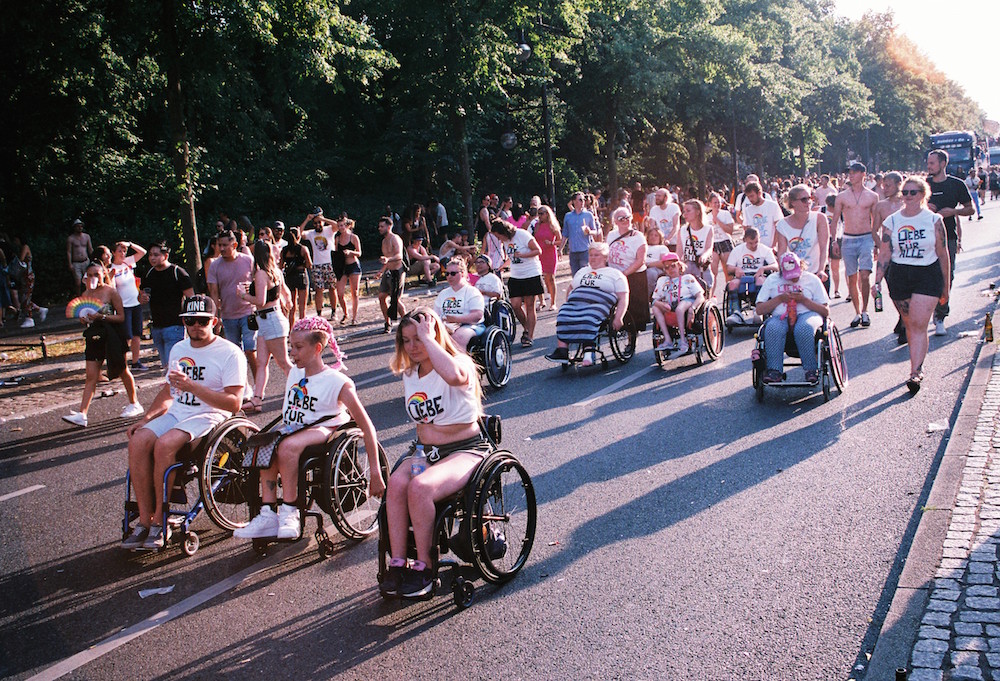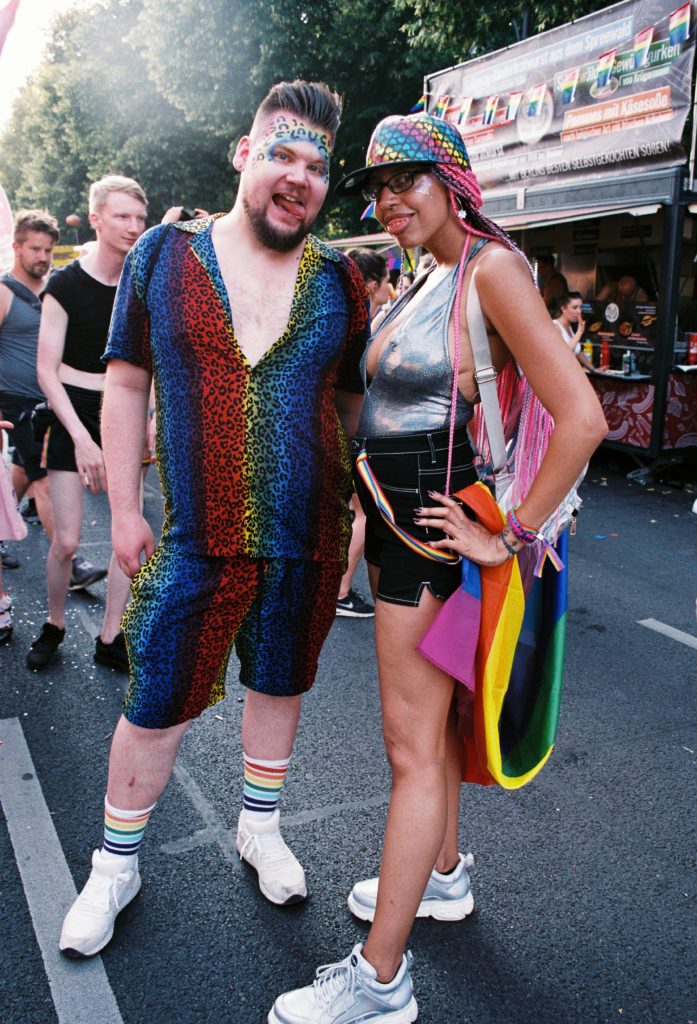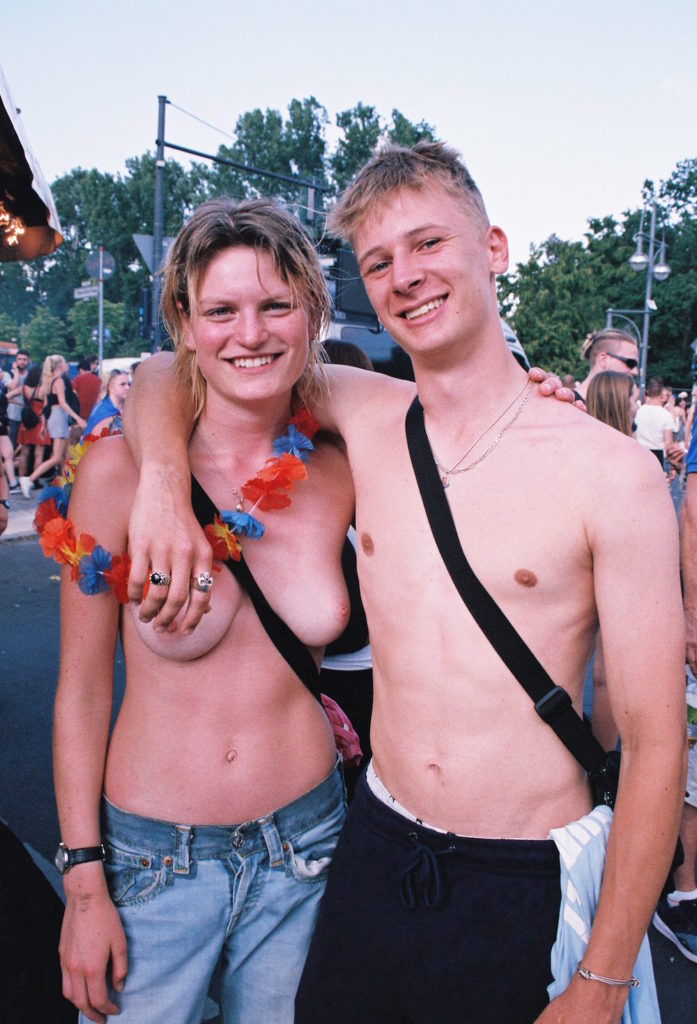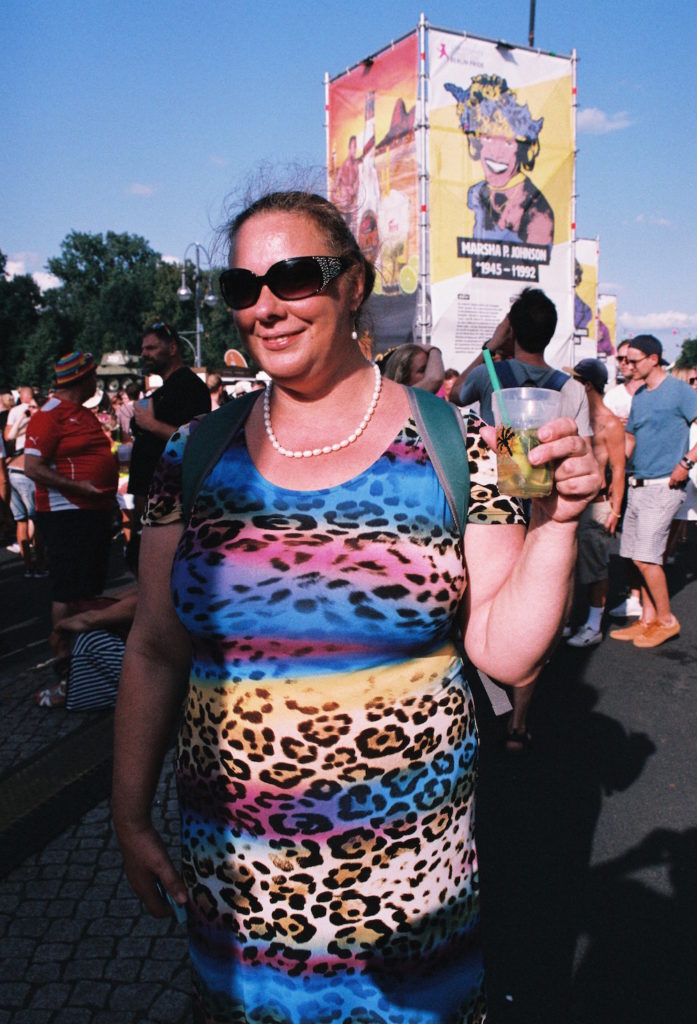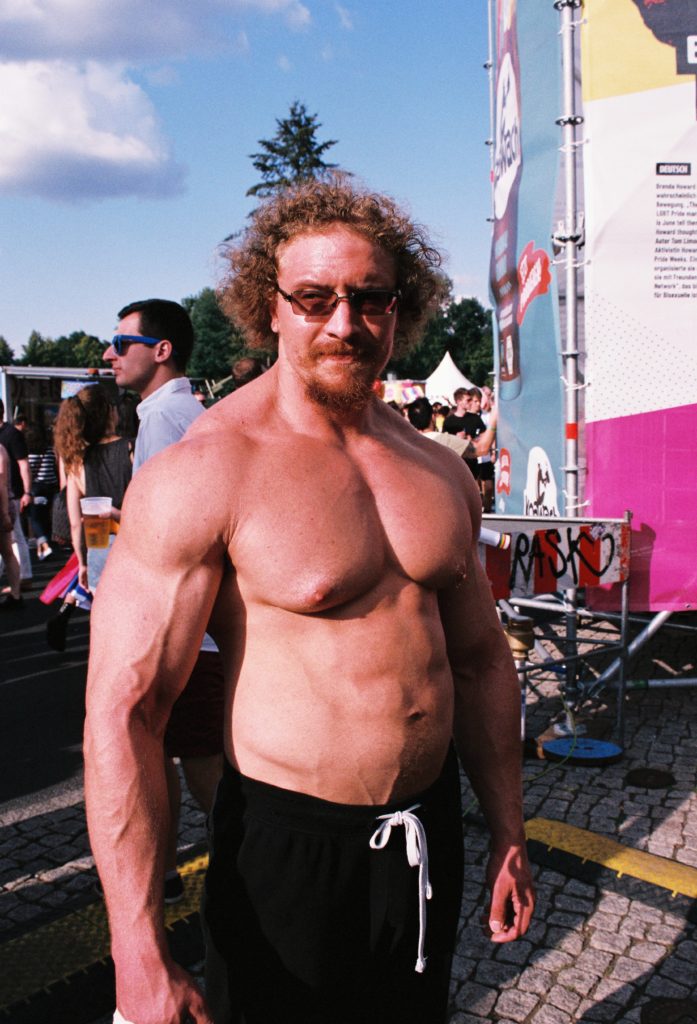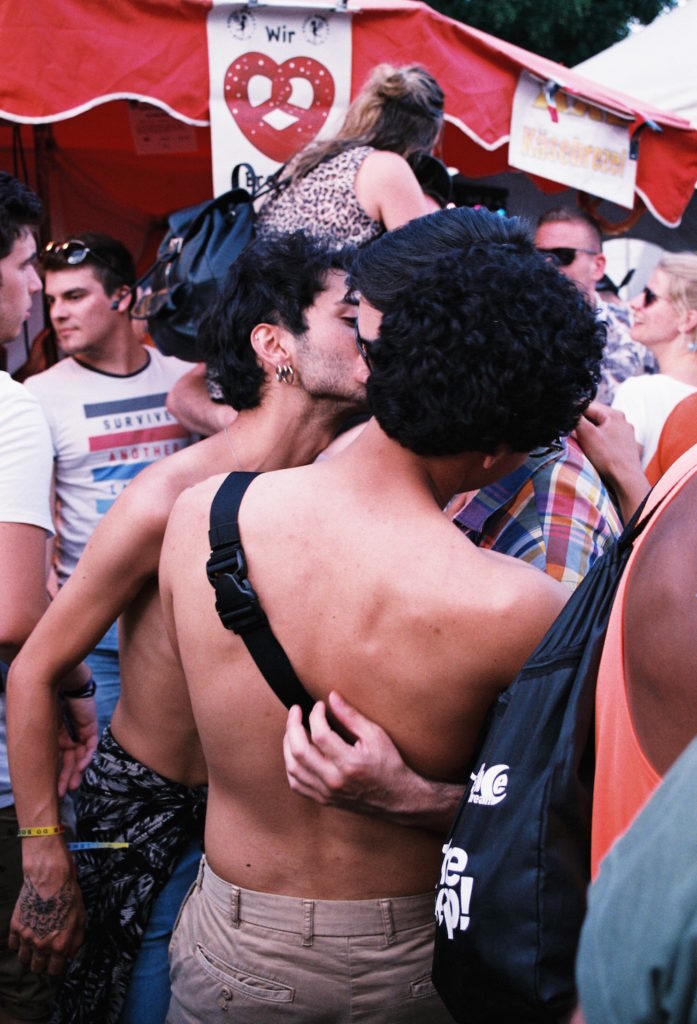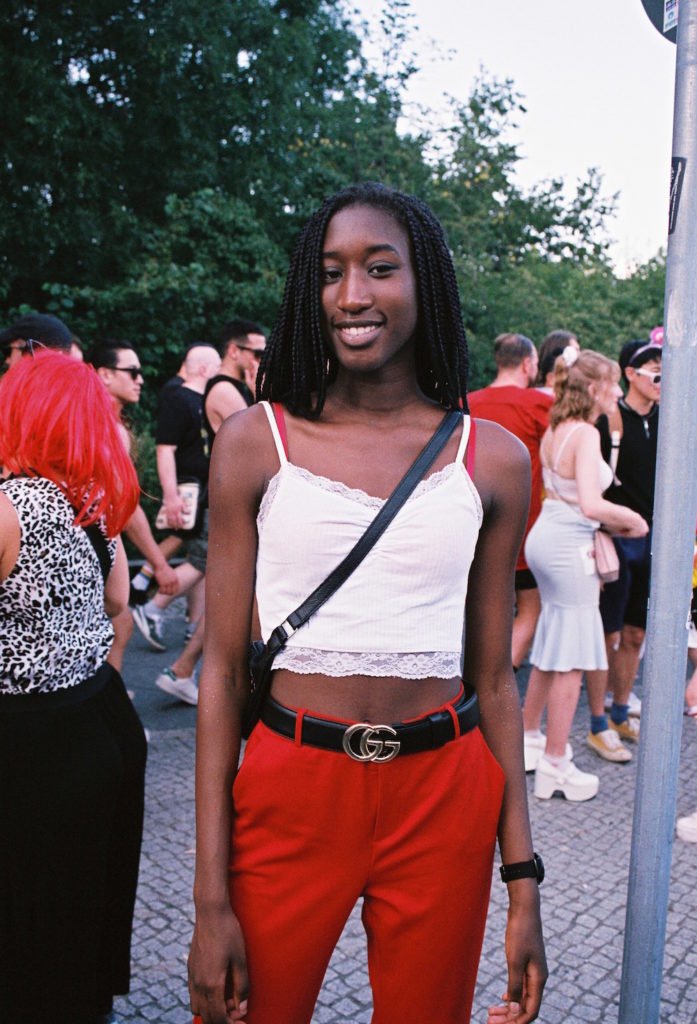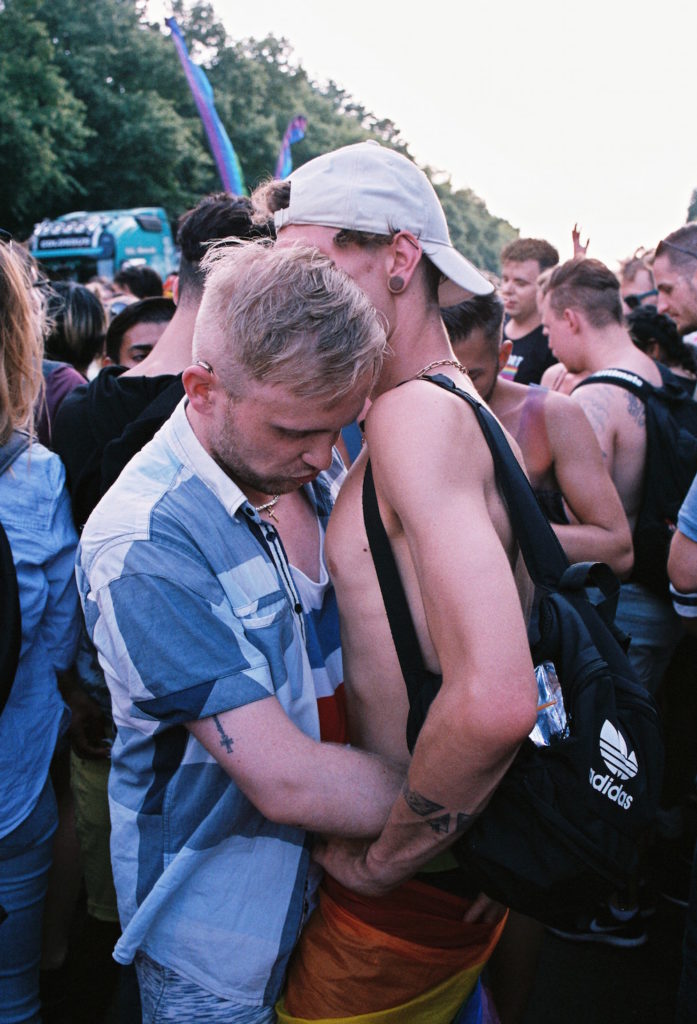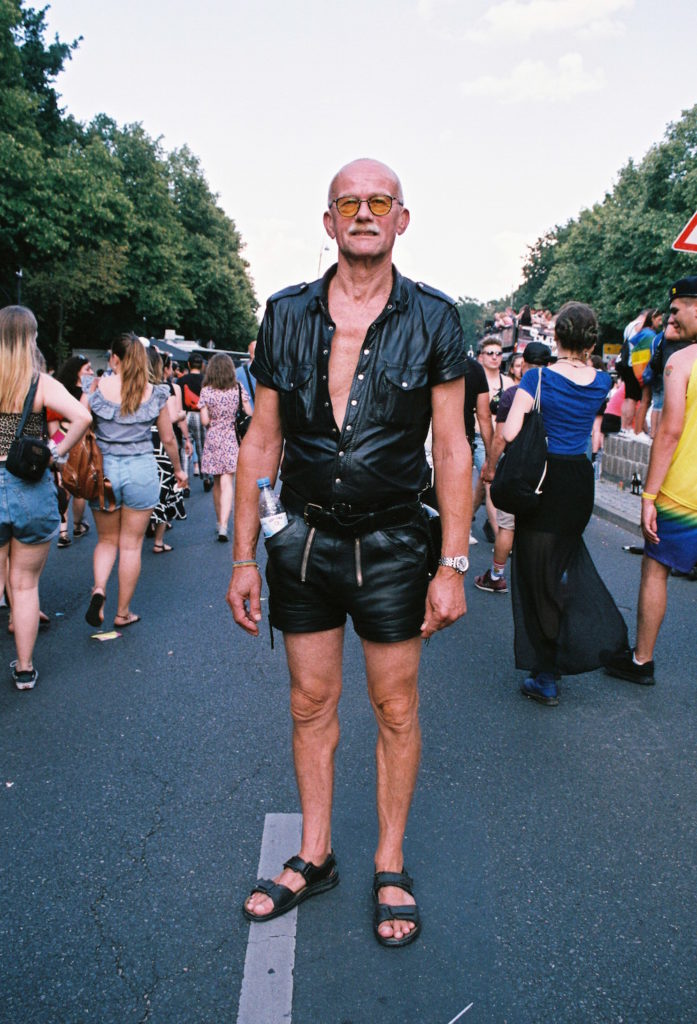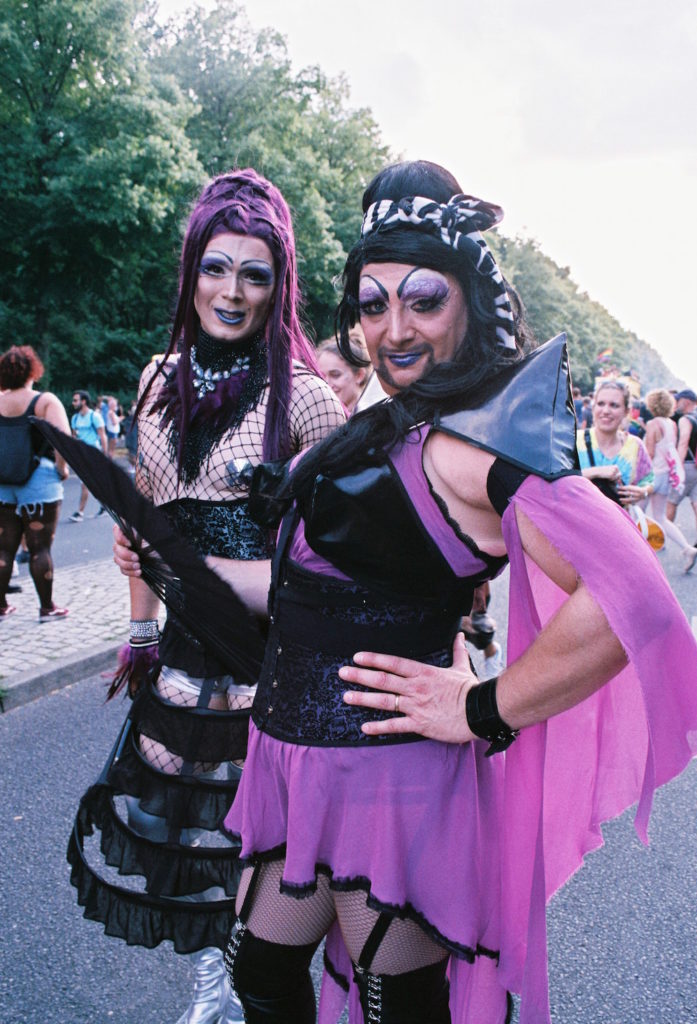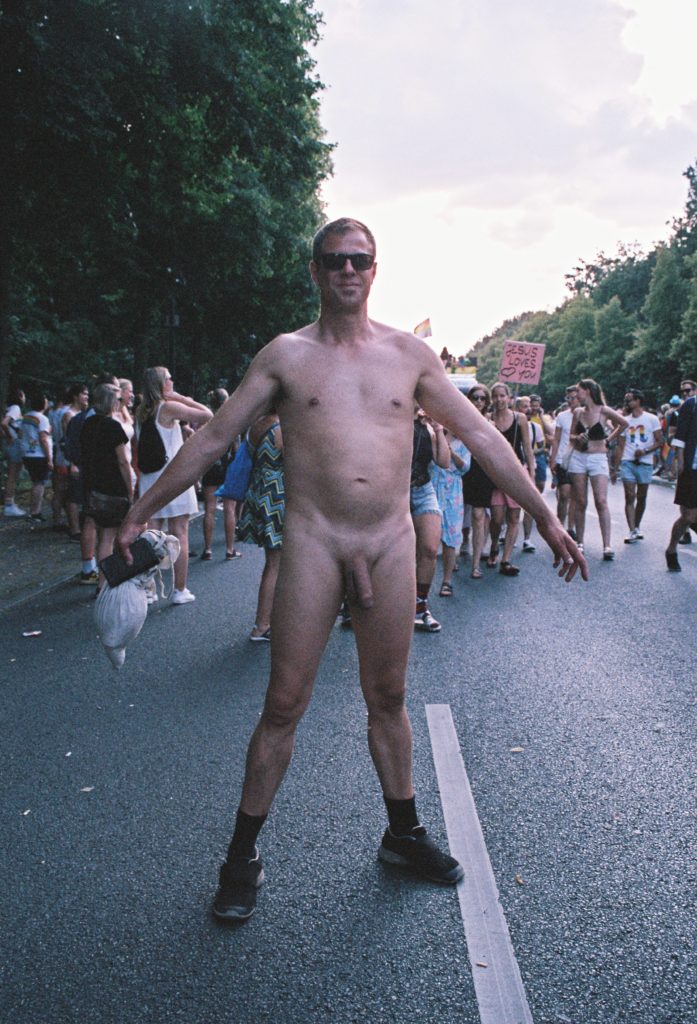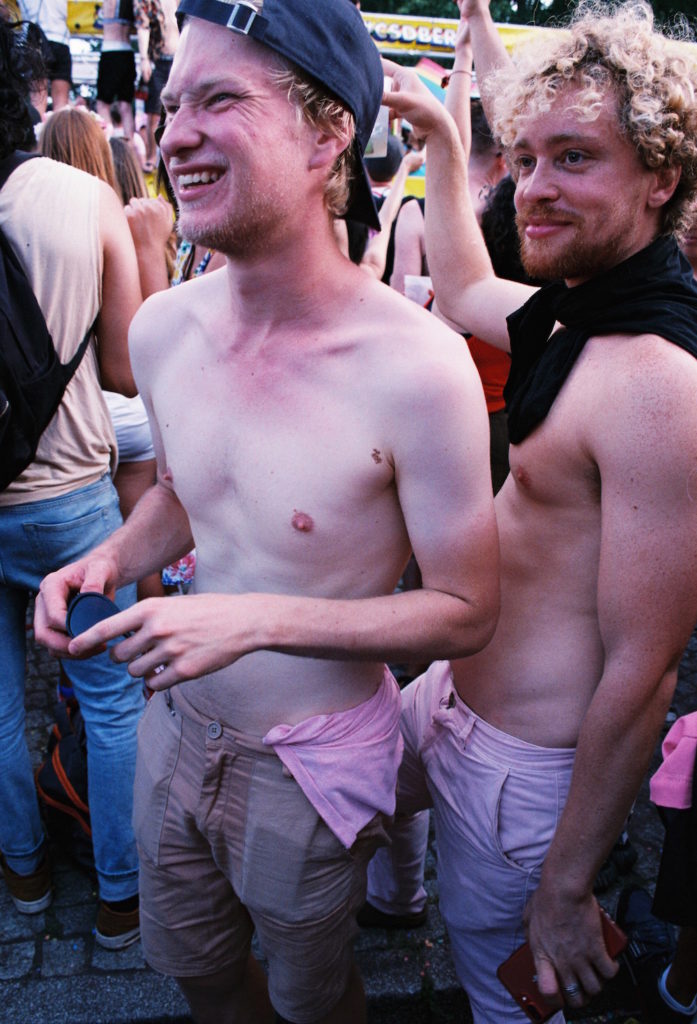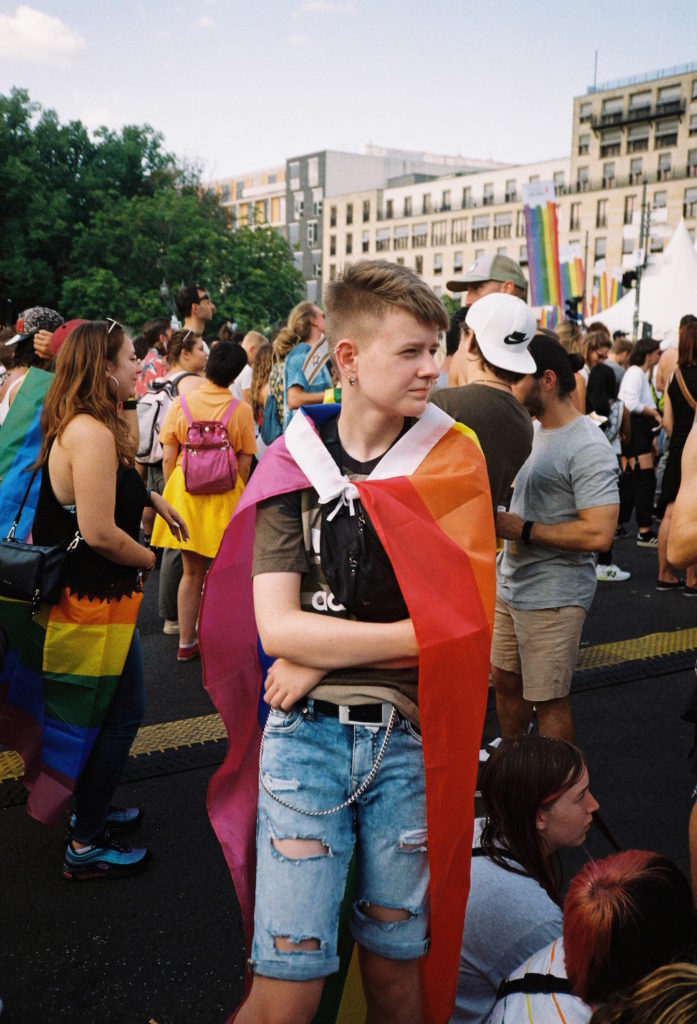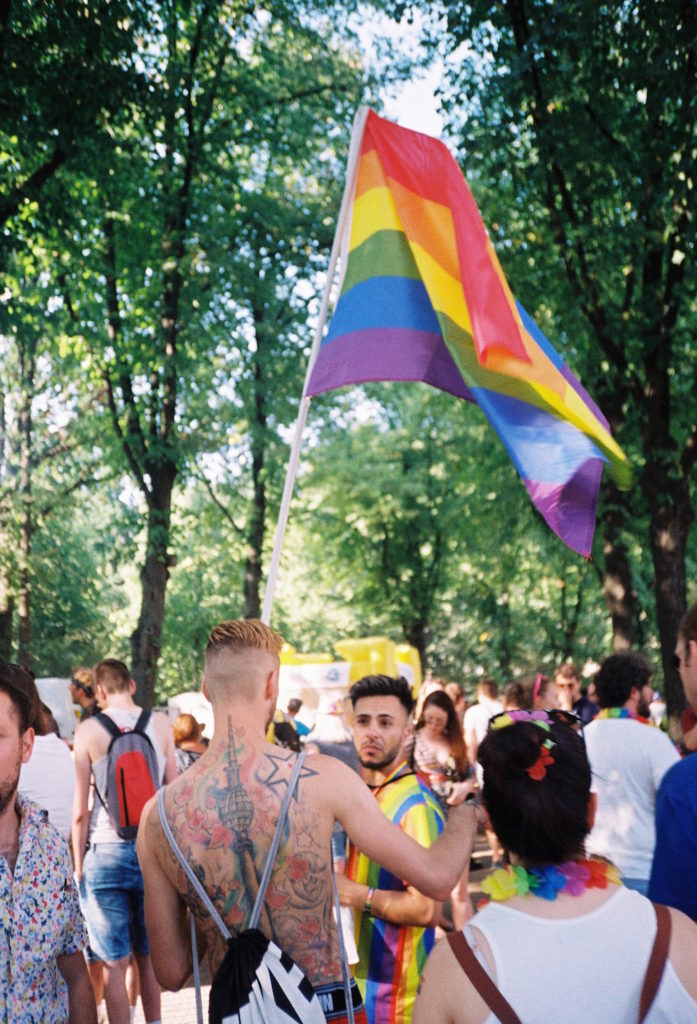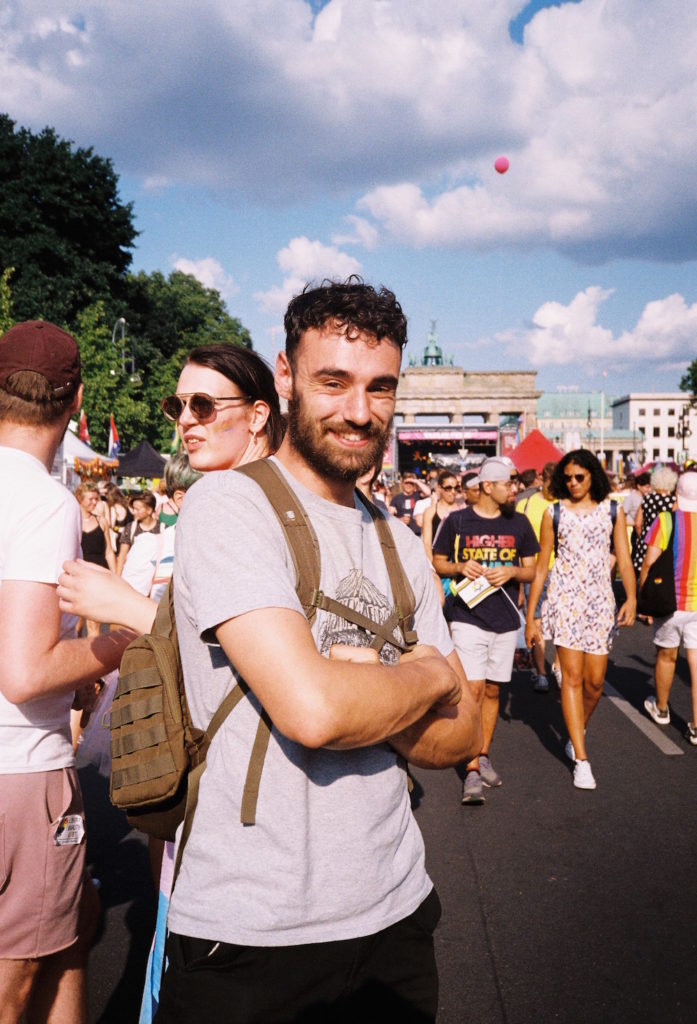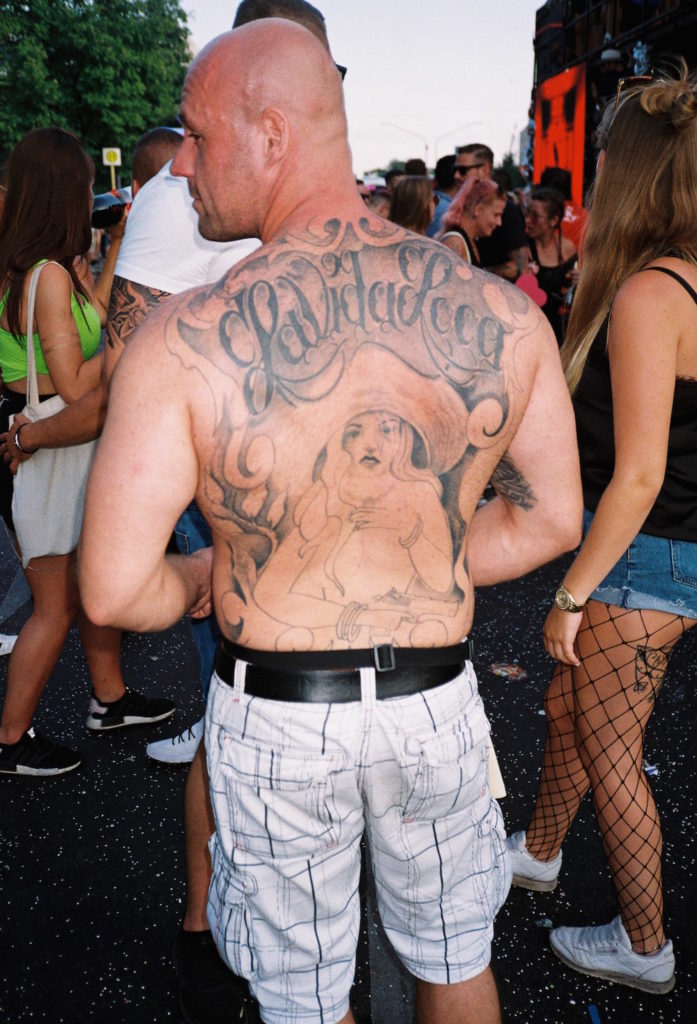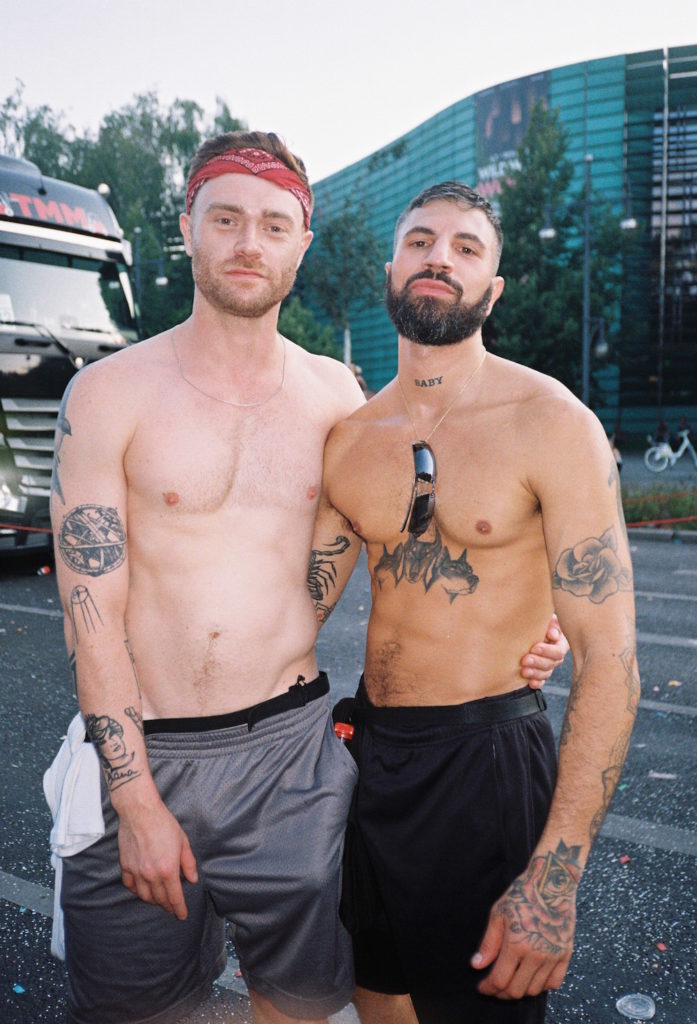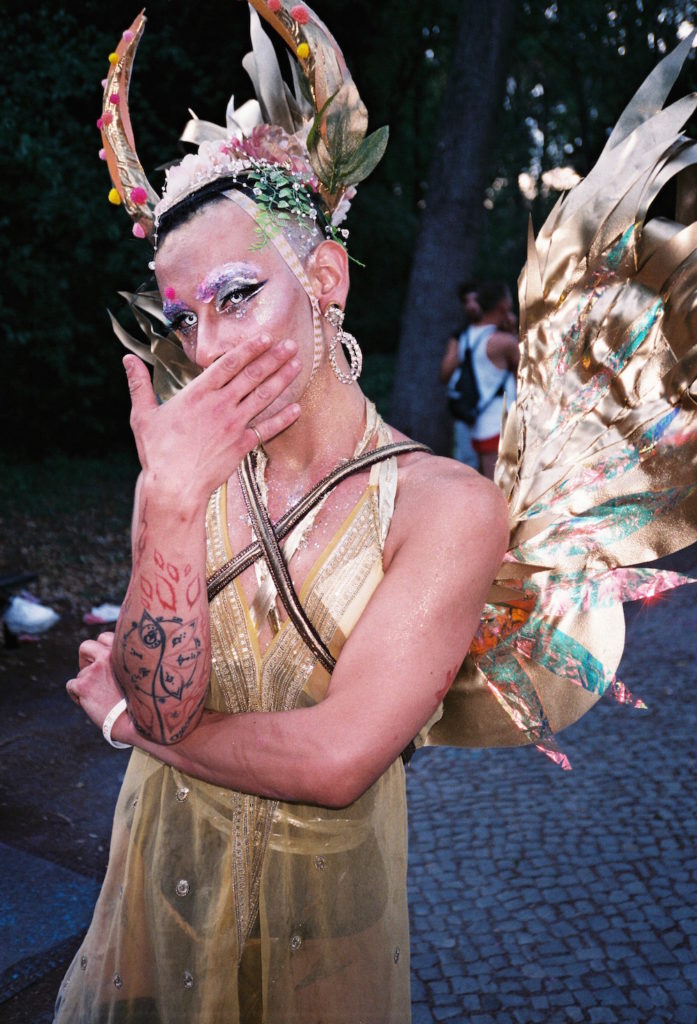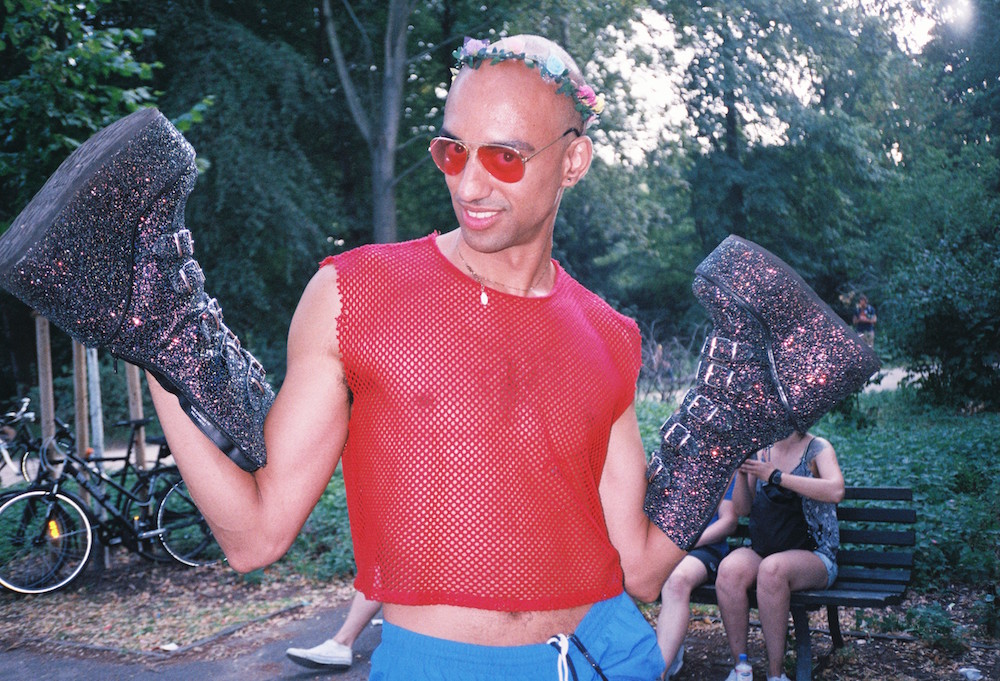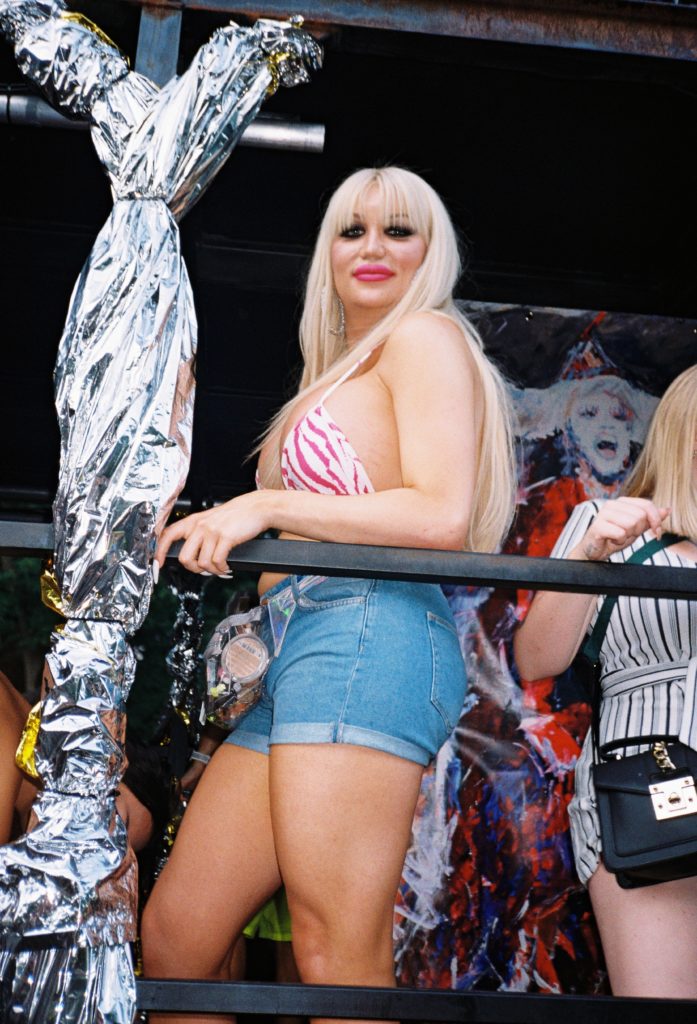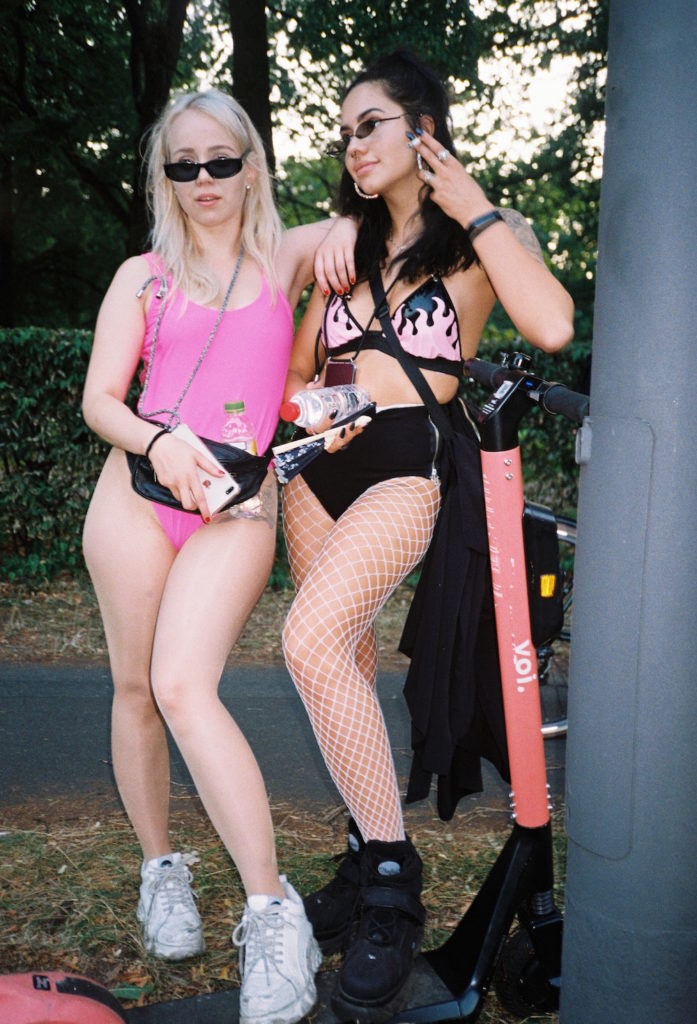“Pride isn’t just about buff white men partying in harnesses. Pride is about people from all walks of life, every size, every colour, every gender and sexuality, be it in blue jeans or g-strings, celebrating who they are and remembering the people who fought for them to even be able to do so in the first place.” It is with these words David Staeglich-Büge—board member and organiser of Berlin’s annual Christopher Street Day, LGBTIQ+ and AIDS-activist for nearly 20 years—decides to conclude our interview. Following this weekend’s joyful and grandiose coming-together for the Germans’ and their capital’s take on what is internationally known as a Pride Parade, we opted to not only offer a Spyros Rennt-shot visual recap of the event, but also take a stroll through its historic origins, the contemporary state of LGBTIQ+ life in Germany, and why, even now, 50 years after the initial Stonewall riots, there are plenty of tables left to turn.
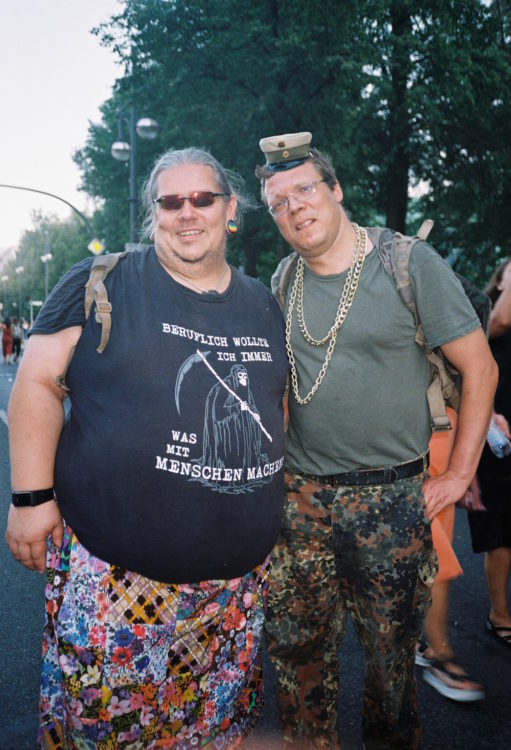
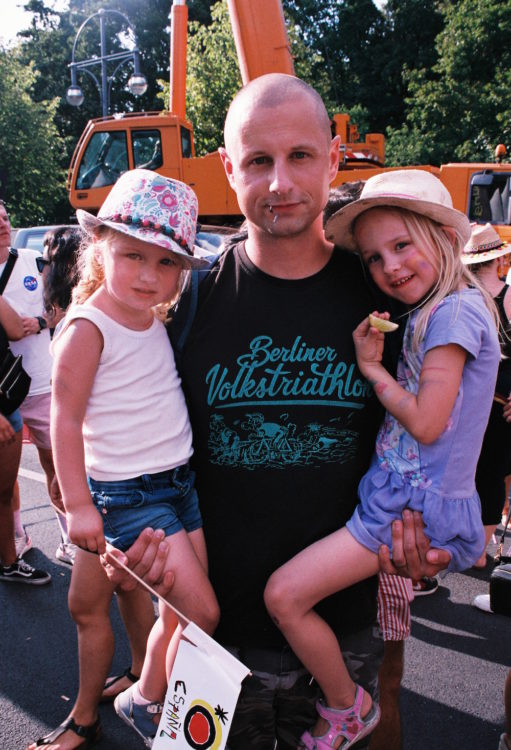
First things first, what seems to be of interest to many is why A, Germany explicitly refers to the festivities as Christopher Street Day(s) instead of simply ‘Pride’, and why B it takes place at the end of July as opposed to sticking to the calendar-designated month of Pride, June. “The Germans adapted the title from Christopher Street in New York, the place where, in 1969, everything we now know and are privileged to take part in as Pride began. So, it’s not so much a particular, national connection, but more so a connection to the birth place of aspiring gay and trans liberation. Based on Germany’s Nazi-history and the associations made with the term ‘Pride’ in this context, the country’s queer community considered ‘Christopher Street Day’ more appropriate and, to a certain degree, less suggestive or confusing,” Staeglich-Büge explains. “The reason it takes place a month later than most places, is because the Parade always comes to a close—speeches, performances and all—at the Brandenburg Gate. It’s a symbolic place for the country and the presence of the event and its people here is of great value and meaning to national and international members of the community, it being one of the landmarks of Berlin and Germany at large. However, every other year, the Brandenburg Gate also hosts public gatherings and screenings of the European and World Football Championships. So, to avoid location and scheduling conflicts, we as the CSD committee decided to push the event as far back as we needed to to guarantee access to all the important venues.”
Needless to say, Football is the Germans’ national treasure when it comes to sports, nevertheless one can’t help but raise a brow at the idea that a game of kicking a ball from one end of a field to the other is of bigger public interest than granting equality to marginalised citizens. And let’s not even get started here on Football’s reputation for a notoriously homophobic inner climate. Not that it’s all that surprising, but it does force one to question the state in which present day life as a queer individual looks like, particularly outside of the safe braces of Berlin, an age-old haven for people in search of an existence beyond the bounds of heteronormativity. “The situation has definitely improved over the course of the last couple of years. I mean, just recently was same-sex marriage officially legalised. So, Germany is a fairly tolerant place in regards to LGBTIQ+ people and their lifestyles. But we mustn’t forget that the rights we’ve fought for so intensively must persevere in times when we see a nation- and Europe-wide rise of right wing ideology. Not only do these groups protest migration and multiculturalism, they’re also averse towards pro-LGBTIQ+ movements on all levels. This is something we need to keep an eye on.”
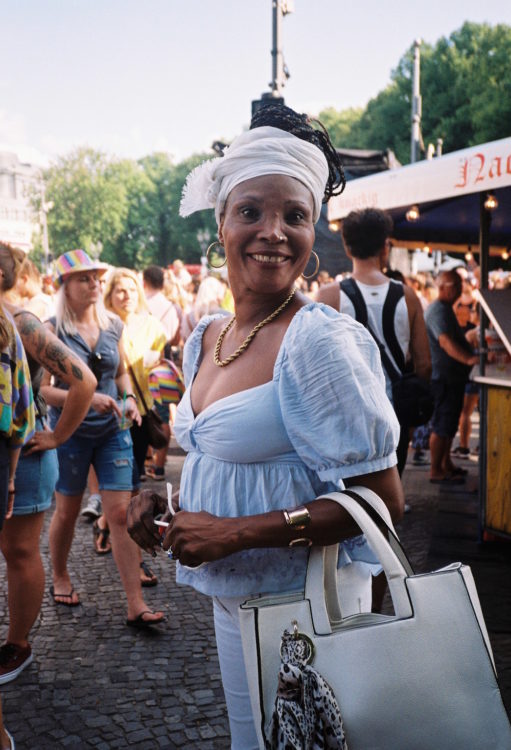
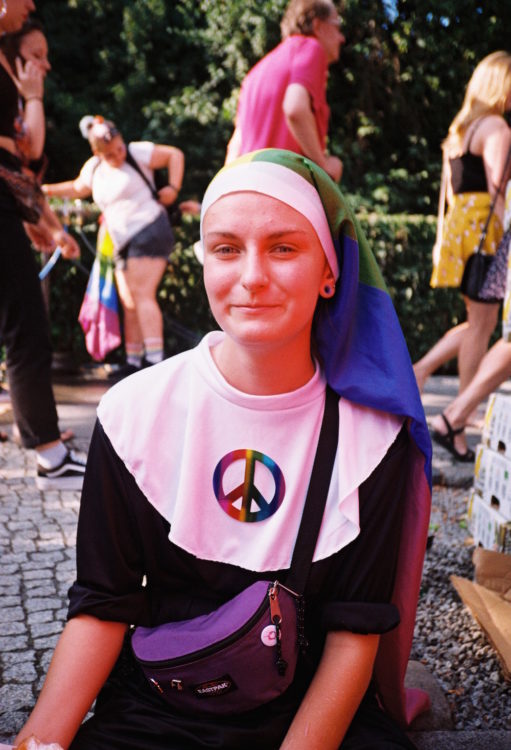
As far as home affairs are concerned, people like Jens Spahn — openly homosexual Minister of Health and member of the CDU, a major, rather conservative party in the German political playing field – are making waves by, for example, “putting PrEP on the Health Care map and going against conversion therapy,” both of which would probably not have received the same type of attention from a heterosexual in that position. And while Spahn is controversial, to say the least, “these are milestones worthy of cherish,” Staeglich-Büge points out. Despite these things, though, ‘gay’ (Schwul) is still the most-used insult on German school grounds, and the majority of youth suicides can be traced back to insufferable homo- and transphobia. Certainly, we should celebrate everything that has happened so far and be appreciative of the progress made, but at the end of the day, bureaucratic notions such as same-sex marriage or the like don’t necessarily help someone coming of age in a non-liberal, non-metropolitan environment of the country. So there’s no reason to believe we can let our guard down. We have to keep fighting for acceptance and self-determination, and transport this agenda to an even wider social screen.”
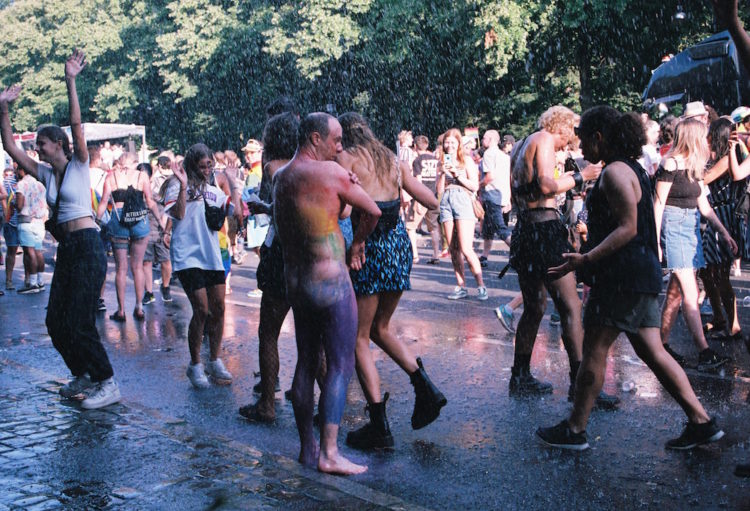
2019 marks the 50th anniversary of the Stonewall riots, as well as the 40th anniversary of the first CSD in Berlin, which is why this year’s festivities were double special and payed homage to national and international trailblazers of the cause. These five figureheads consist of German Karl Heinrich Ulrichs, one of the very firsts advocates for homosexuality, Lili Elbe, the Danish-born slash Berlin-based first intersex individual to go through sex reassignment surgery, Brenda Howard, also known as ‘Mother of Pride’, the late bisexual that initiated the first Gay Liberation March one year after Stonewall, as well as Audre Lorde, a lesbian, POC- and feminist activist and finally, Marsha P. Johnson, the iconic trans woman among the original Stonewall rioters, most of whom where in fact also trans and/or men and women of colour. “This year, we’re especially motivated, and at the same time, we feel we have great responsibility opposite our ancestors. What happened back then in ’69 was not a peaceful call to action via online petition. These were desperate outbursts, charged with both immediacy and urgency, raging against unjust police brutality towards New York City’s local LGBTIQ+ population.”
In regards to the local event, one can only feel joy over the fact that “what once started in West Berlin back in 1979, led by barely 400 activists” has since grown into an annual, 1 million-heavy (2019) declarative spectacle of love. A spectacle threatened again and again by forces of bigotry, most notably the recently announced and ridiculously offensive Boston Straight Pride, to be held in August. “Granting someone Human Rights will not take away from anyone else’s. It’s not like taxing someone for their possession to be then given to someone else, it’s simply awarding those less-privileged the basic right to be who and be with who they want to be,” Staeglich-Büge stresses. “We are and always will be a minority. To this day, we don’t have a seat at every table. Which is why we need to keep doing what we do, keep reaching out to and mobilising allies to help us in our pursuit. The battle’s not over, not even 50 years past Stonewall.”
Photography SPYROS RENNT

